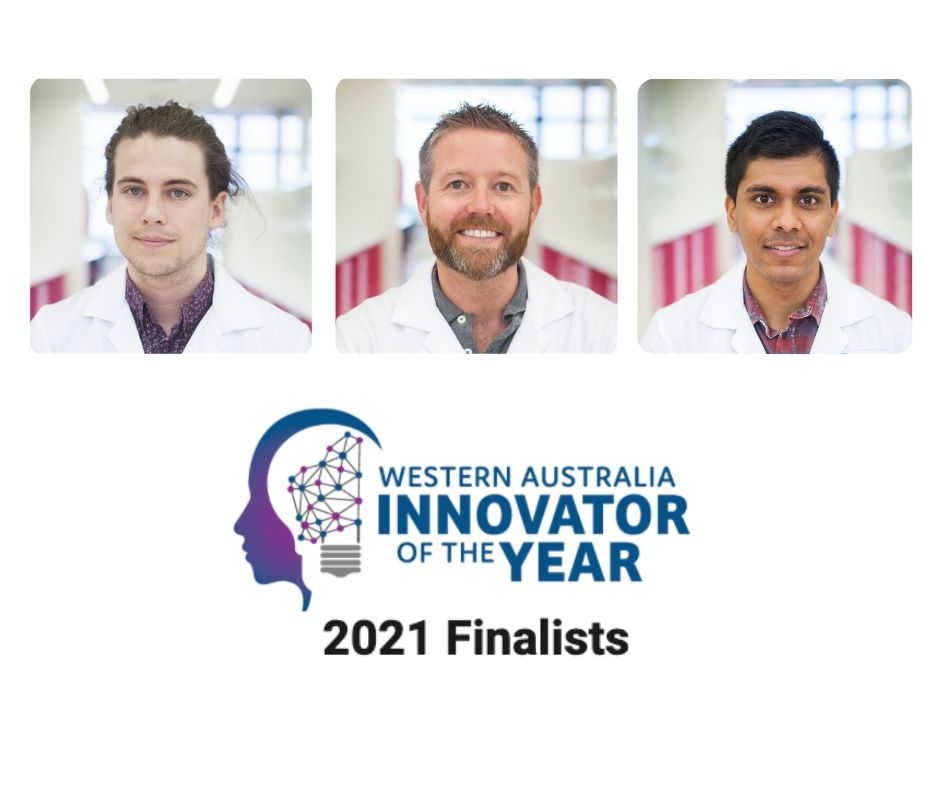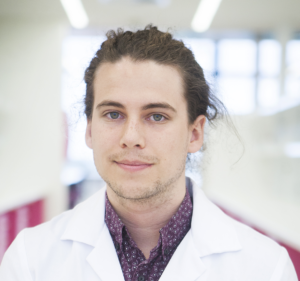
Two Perkins initiatives are in the running as finalists for several WA Innovator of the Year categories in the 2021 Awards that will be announced early in November.
Apricot is a new tool that provides cardiologists with rapid information to treat patients with heart disease and save lives lost from heart attacks and VeinTech is a medical device company aiming to improve patient and physician experience in vascular access practices,
Commercialisation of medical research innovations lead to the move from discovery- to translational- research to first-in-human trials with application of tools and approaches that may give a better health outcomes to people with diseases.
Apricot, an advanced coronary artery assessment tool, developed by a team of researchers from The University of Western Australia and the Harry Perkins Institute of Medical Research has been named a finalist in both the Rio Tinto Emerging and Wesfarmers Wellbeing Award categories.
It aims to provide new information to the cardiologist when they are treating a patient during catheterisation theatre, known as the Cath Lab, where procedures such as stenting are carried out.
The new information combines the anatomical data that they can see on the images, with engineering-based information that they cannot see, to give them a better idea of how to treat the patient.
Associate Professor Barry Doyle and Dr Lachlan Kelsey from UWA’s School of Engineering and the Harry Perkins Institute of Medical Research developed the methods over the past seven years in collaboration with Professor Carl Schultz, the UWA Chair in Cardiology and an interventional cardiologist at Royal Perth Hospital.
Associate Professor Doyle said the technology began from a research question around wanting to advance understanding about how the mechanical forces contributed to disease in the artery and then evolved into a new suite of software tools.
“When treating patients, cardiologists often use many different types of images to see the problem,” Associate Professor Doyle said.
“Apricot merges the different images together to create an advanced 3D visualisation of the diseased artery.
“The software then performs engineering simulations, similar to what would be used in oil and gas pipelines, to update the images with this new information.”
Apricot aims to do this in real-time while the patient is being treated in hospital, allowing the cardiologist to make better decisions and improve patient outcomes.
Associate Professor Doyle said roughly one in three Australians who had a heart attack and were treated in hospital (often by a stent placed in their coronary artery), either died or returned to hospital following another heart attack within three years.
“Internationally, one in five of these patients will die from another heart attack or end up back in hospital with another heart attack within two years,” he said.
“We hope this new information will reduce the grim statistics, leading to better outcomes for the patient and savings for the hospital, as unexpected returns are very costly.”
A company called Navier Medical has been established to commercialise the technology.
VeinTech Australia, another Perkins initiative, is also a finalist in the WA IOTY categories of Business News ‘Great for the State’ – Platinum Award and Wesfarmers Wellbeing – Platinum Award.
VeinTech is a medical device company aiming to improve patient and physician experience in vascular access practices, co-founded by Nikhilesh Bappoo, a biomedical engineer PhD at the Perkins/UWA Vascular Engineering Lab (VascLab), along with Emergency Consultant Dr Katherine Arenson and Telethon Kids Researcher Nick Buckley. Within six months of the start-up’s inception the team had identified an unmet clinical need and developed a solution to address the need through the Perth Biodesign program.
Recently the team reached the milestone of a proof-of-concept device for VeinWave, and are working with the support of grant funding towards a clinical prototype that can eventually be used first in human trials.
Nik is a biomedical engineer specialising in vascular research and medical devices with a vision to leverage medical research and technological innovation to modernise and improve the quality, delivery and equity of global health care.
At the Perkins, we bring the best and brightest minds together to collaborate and share knowledge at all stages of a scientific career — from the early stages of STEM education, through to supporting new scientists and early-to-mid career researchers, as well as those in the community who are simply interested to get involved in the medical research experience.
The Perkins is committed to raising awareness of medical research, encouraging next generation scientists, as well as discovering breakthroughs in science to find better treatments for the diseases that most affect our families.
The WA Innovator of the Year 2021 winners will be announced at the 3rd November Awards ceremony.

Dr Lachlan Kelsey, Research Associate from the Harry Perkins Institute of Medical Research in Cardiovascular Science & Diabetes – Vascular Engineering, and UWA’s School of Engineering

Associate Professor Barry Doyle, Joint Program Head of Cardiovascular Science and Diabetes and also Lab Head (Group Leader) of the Vascular Engineering Laboratory (VascLab) at the Harry Perkins Institute of Medical Research. He is also Associate Professor in the School of Engineering at UWA.

Nikhilesh Bappoo, a biomedical engineer PhD at the Perkins/UWA Vascular Engineering Lab (VascLab),is CTO and co-founder of VeinTech Australia.
